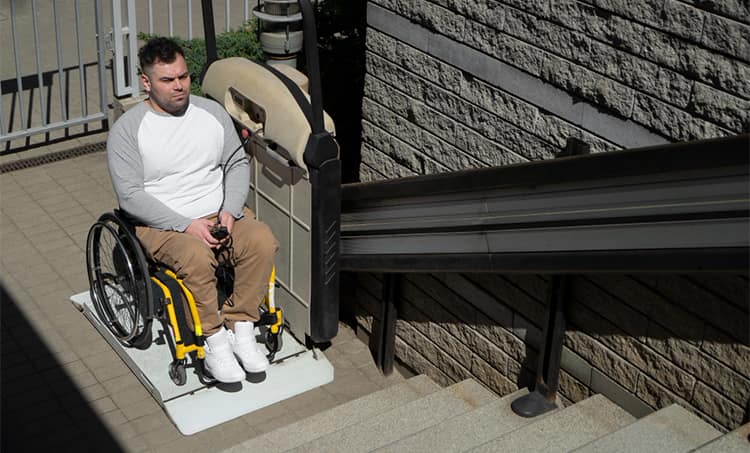
We believe that everyone deserves a chance to improve their lives,
and we’re here to provide the resources and information you need to do just that.
Why Freegovgrants.com ↗
Discover a world of possibilities with Freegovgrants, your trusted resource for free grant.
Learn from our expert tips, and step-by-step guides to submit your application.
Quick Fact About Government Grants
Government grants are invaluable resources to low-income individuals, businesses, communities, and education seekers providing financial support for various initiatives. These grants are used as non-repayable funds offered by government agencies for specific purposes, such as meeting the various need and hardships, education, research, community development, and innovation.
We have researched extensively to explore different type of free government grants for different type of individuals, business, education, new initiative and many more. This website is going to be a comprehensive study if you want to learn about free government grants as well.
In the United States, different type of people can explore free government grants programs available to meet different needs. These grants focus on a wide array of purposes, including meeting hardships, education, healthcare, research, small business development, housing, agriculture, and more. While these grants can be termed as “free money,” they typically require applicants to meet specific eligibility criteria, adhere to eligibility guideline, and submit complete applications outlining how free government grants are going to be used for better days.
Government agencies at the federal, state, and local levels run and sponsor these grants to address low-income individuals’ hardships, societal needs, foster innovation, support economic growth, and improve the overall well-being of citizens and communities. The aim of free government grants also ensures economic activities because all portion of people having money means economic development together which works in the United States of America.
Types Of Free Government Grants Program
Here are so many lists of free government grants and one can get to know the government grants nature and how it works.
Small Business Grant
In the United States, there are numerous business grants available at the federal, state, and local levels to support entrepreneurs, start-ups, small businesses, and larger enterprises. Some prominent business grants in the USA include:
- Small Business Innovation Research (SBIR) and Small Business Technology Transfer (STTR) grants: These federal grants energize small businesses in conducting research and development (R&D) with the potential for commercialization in technology and innovation-related fields across various government agencies, including the National Institutes of Health (NIH), National Science Foundation (NSF), Department of Defence (DoD), and more. It is the great initiative to empower small business with free government grants.
- Small Business Administration (SBA) Grants: The SBA doesn’t directly provide grants to start or expand a business, but it does facilitate access to federal grants for small businesses through various programs, including disaster assistance grants, specifically during times of declared disasters. This comes also as free government grants to empower entrepreneurship in the United States of America.
- Economic Development Administration (EDA) Grants: this grant is offered by the U.S. Department of Commerce. EDA grants is also free government grants that aim to support economic growth by providing funding for infrastructure projects, job creation initiatives, and business development in economically distressed areas. As part of funding opportunities as free government grants, you can get started with EDA grants.
- State and Local Grants: Each state and many local governments provide business grants, loans, or incentives to support local economic development, job creation, industry-specific projects, and small business growth. These free government grants vary widely based on location and available funding.
- Corporate and Private Foundation Grants: Many corporations and private foundations offer grants or funding opportunities for small businesses, start-ups, or projects that align with their corporate social responsibility (CSR) goals, businesses involved in innovative research, technology development, or product innovation can access grants from agencies like the National Science Foundation (NSF), Department of Energy (DOE), and others focused on advancing scientific knowledge and technological innovation.
- Women-Owned, Minority-Owned, and Veteran-Owned Business Grants: Specialized grants aimed at supporting businesses owned by women, minorities, veterans, or other underrepresented groups to promote diversity and inclusion in entrepreneurship. More importantly free government grants for stay-at-home mom, grants for single mothers, grants for black women have also so many fields to get free government grants.
Education Grant
In the United States, various education grants are available to support individuals, students, educators, schools, and educational institutions at different levels. These free government grants can be used to improve educational outcomes, promote access to quality education, and address specific educational needs. Some education grants in the USA include:
- Federal Pell Grants: Federal Pell Grants are widely available for the students and it is offered by the U.S. Department of Education. Pell Grants provide financial assistance to undergraduate students with demonstrated financial need to help pay for college expenses. These grants do not need to be repaid.
- Federal Supplemental Educational Opportunity Grants (FSEOG): These grants are for undergraduate students with exceptional financial need and provide additional aid beyond what is offered through the Pell Grant. This grant comes between $1000 to $4000 per year according to financial need.
- Teacher Education Assistance for College and Higher Education (TEACH) Grants: Intended for students who are going to become teachers in high-need fields in low-income areas, the TEACH Grant offers financial assistance in exchange for a commitment to teach in specified schools for a certain period after graduation. Then the government has the grant programs as free government grants for teaching development.
- State-Based Education Grants: Many states along with other grants offer their own grant programs to support higher education, such as need-based grants, merit-based grants, tuition assistance programs, and grants targeting specific fields or demographics. It is important to contact with the local government for state-based education grant.
- Federal Grants for Institutions: The U.S. Department of Education also provides free government grants to educational institutions, including universities, colleges, and schools, to support research, infrastructure improvements, educational programs, and student support services.
- Specialized Grants: Certain grants cater to specific educational purposes or groups, such as grants for students with disabilities, government grants supporting STEM (Science, Technology, Engineering, and Mathematics) education, and grants for vocational training or career development.
- Research Grants: Universities and academic institutions often receive federal research grants from agencies like the National Science Foundation (NSF), National Institutes of Health (NIH), and others to fund scientific research across various disciplines.
HUD Housing Grant
In the United States, various housing grants as part of free government grants are available to assist low income individuals, families, veterans, low-income households, and communities in accessing safe, affordable housing and addressing housing-related needs. These government grants are aimed at promoting homeownership, providing rental assistance, supporting housing development and rehabilitation, and addressing homelessness. Some housing grants in the USA include:
- Section 8 Housing Choice Voucher Program: Section 8 is commonly known as housing choice voucher and it is administered by the U.S. Department of Housing and Urban Development (HUD). This program assists eligible low-income individuals and families in affording decent, safe, and sanitary housing in the private market by subsidizing rental costs. The eligible renters have to pay a portion of rent price according to their income and the rest is paid in association with government subsidized rent.
- HOME Investment Partnerships Program (HOME): This HUD program provides grants to states and localities to ensure funding a wide range of activities, including building, buying, and rehabilitating affordable housing for rent or homeownership, as well as providing direct rental assistance to low-income households.
- Community Development Block Grants (CDBG): Community Development Block Grants is offered by HUD. CDBG grants ensure support for community development activities, including affordable housing initiatives, infrastructure improvements, and services benefiting low- and moderate-income individuals and communities. As the government provides subsidy to ensure housing initiatives, the low-income renters can go with such grant program.
- USDA Rural Development Housing Assistance: The U.S. Department of Agriculture (USDA) has so many free government grants program. Part of this, grants and loans are provided to assist rural communities and individuals in acquiring or building a house, repairing, and improving housing through programs like the Single-Family Housing Repair Grants and Loans.
- Housing Grants for Veterans: Programs like the Specially Adapted Housing (SAH) Grant and the Special Housing Adaptation (SHA) Grant are provided by the U.S. Department of Veterans Affairs (VA) to help disabled veterans or service members with housing adaptations and accessibility modifications.
- Emergency Solutions Grants (ESG): These free government grants, administered by HUD, provide funding to assist individuals and families who are homeless or at risk of homelessness by offering emergency shelter, rapid rehousing, and homelessness prevention services.
- State and Local Housing Grants: Many states, cities, and local housing authorities offer their own housing grants and assistance programs according to local housing needs, rental assistance, down payment assistance, and housing development initiatives.
Government Grants for Seniors
There are various government grant programs specifically designed to assist seniors in different aspects of their lives. These grants aim to support older adults in areas such as healthcare, housing, education, and community services. Here are some examples of free government grants available for seniors:
- Medicare Savings Programs: These programs help seniors cover Medicare premiums, deductibles, coinsurance, and co-payments based on income eligibility.
- State Health Insurance Assistance Programs (SHIP): SHIP provides counselling and assistance to seniors regarding Medicare, Medicaid, and other health insurance-related matters.
- HUD Grants for Seniors: The U.S. Department of Housing and Urban Development (HUD) offers various housing programs for seniors, including subsidized housing and housing vouchers.
- Home Repair Grants: Some local and state governments provide grants to help seniors with home repairs, modifications for accessibility, and energy-efficiency improvements.
- Senior Community Service Employment Program (SCSEP): SCSEP provides part-time job training opportunities for low-income individuals aged 55 and older.
- Supplemental Nutrition Assistance Program (SNAP): Formerly known as food stamps, SNAP offers nutrition assistance to eligible seniors to help purchase food.
- Elderly Nutrition Programs: Programs like Meals on Wheels provide nutritious meals and social interaction for seniors who are homebound.
- Senior Corps Programs: These federal volunteer programs engage seniors in community service activities, such as mentoring, tutoring, and providing companionship to other seniors.
- Low-Income Home Energy Assistance Program (LIHEAP): LIHEAP assists low-income households, including seniors, in paying utility bills, weatherizing homes, and reducing energy costs.
Government Grants for Veterans
Grants for veterans in the United States are designed to provide financial assistance, support services, housing, education, training, and entrepreneurial opportunities to veterans, service members, and their families. Various government agencies and non-profit organizations offer grants tailored to address the unique needs of veterans. Some notable grants for veterans include:
- Veterans’ Mortgage Life Insurance (VMLI) Grant: VMLI grants provide mortgage life insurance protection to severely disabled veterans who have received a VA grant for specially adapted housing.
- Vocational Rehabilitation and Employment (VR&E) Program: Also known as the Chapter 31 program, it offers various services, including education, job training, employment assistance, and rehabilitation to veterans with service-connected disabilities.
- Veteran-Owned Small Business Grants: The Small Business Administration (SBA) offers programs like the Veteran Business Outreach Centres (VBOC) and the Boots to Business program, which provide resources, training, counselling, and financial assistance to help veterans start or grow their businesses.
- Education Grants for Veterans: The GI Bill provides educational benefits, including tuition assistance, housing allowances, and other educational expenses, to eligible veterans and service members for pursuing higher education, vocational training, or apprenticeships. Such education may be a demand at this stage for personal development as long as they live. Supporting this step is really wonderful as well.
- Veterans’ Caregiver Support Grants: These grants, available through the VA, provide assistance, resources, training, and stipends to family caregivers of post-9/11 veterans, including the Program of Comprehensive Assistance for Family Caregivers (PCAFC).
- Emergency Financial Assistance Grants: Non-profit organizations like the Veterans of Foreign Wars (VFW), American Legion, and other veteran service organizations often provide emergency financial aid to veterans facing unexpected financial crises.
- Homelessness Prevention Grants: Programs such as the Supportive Services for Veteran Families (SSVF) provide grants to non-profit organizations to assist veterans and their families in securing or maintaining stable housing.
Government Grants for Women
Grants for women in the United States are specifically designed to support women’ different need, entrepreneurs, professionals, students, and organizations addressing women’s issues. These grants focus to promote gender equality, economic empowerment, education, healthcare, and leadership opportunities for women or disable female. Various government agencies, non-profits, corporations, and foundations offer grants tailored to women’s needs. Some notable grants for women include:
- Small Business Grants for Women: Programs like the Small Business Administration (SBA) Women-Owned Small Business Federal Contracting Program offer resources, funding, and support to women-owned businesses seeking government contracts. Additionally, organizations like the Eileen Fisher Women-Owned Business Grant Program provide grants to women entrepreneurs.
- Educational Grants for Women: Many scholarships and grants specifically target women pursuing higher education or career advancement. Organizations such as the P.E.O. Sisterhood and the American Association of University Women (AAUW) offer scholarships and grants for women in various fields of study.
- Grants for Women in STEM: Programs like the National Science Foundation (NSF) ADVANCE grant and the Society of Women Engineers (SWE) scholarships support women pursuing education and careers in science, technology, engineering, and mathematics (STEM).
- Grants for Women’s Health Initiatives: Government agencies like the U.S. Department of Health and Human Services and non-profit organizations provide grants to support healthcare programs, research, and initiatives addressing women’s health issues, such as breast cancer awareness, reproductive health, and maternal healthcare.
- Non-profit Grants for Women’s Empowerment: Organizations like the Women’s Funding Network and the Global Fund for Women offer grants to non-profits and grassroots organizations working to empower women, address gender-based violence, promote leadership, and advance women’s rights globally.
- Community Development Grants: Some local and regional governments, as well as foundations, offer grants to support community-based projects focusing on women’s economic development, empowerment, and well-being.
- Grants for Women Veterans: Programs like the Service Women’s Action Network (SWAN) and the Women Veterans’ Healthcare Innovation Program provide grants and support services tailored to women who have served in the military.
Government Grants for Agriculture
Agricultural development grants are instrumental in supporting initiatives, projects, and programs that aim to improve agricultural practices, enhance productivity, promote sustainability, and foster economic growth within the agricultural sector. These grants focus on various aspects of agricultural development, including modernization, technology adoption, research, training, infrastructure improvement, and market access. Here are some key agricultural development grants available in the United States:
- USDA Rural Development Grants: The U.S. Department of Agriculture (USDA) offers a range of grants that support agricultural development in rural areas. Programs such as the Value-Added Producer Grants (VAPG), Rural Business Development Grants (RBDG), and Rural Energy for America Program (REAP) provide funding for projects that enhance agricultural production, processing, and renewable energy initiatives.
- Sustainable Agriculture Grants: Initiatives like the Sustainable Agriculture Research and Education (SARE) program offer grants for projects that promote sustainable farming practices, conservation, soil health, crop diversification, and organic agriculture. These grants aim to improve long-term agricultural viability while minimizing environmental impact.
- Conservation Innovation Grants (CIG): Administered by the USDA Natural Resources Conservation Service (NRCS), CIG grants support innovative approaches to conservation on agricultural lands. These grants fund projects that focus on resource conservation, improved efficiency, and environmental stewardship.
- Specialty Crop Block Grants: Managed by state departments of agriculture and funded by the USDA, these grants support the development and marketing of specialty crops such as fruits, vegetables, nuts, and floriculture. The grants aim to increase the competitiveness of specialty crop producers and enhance crop quality.
- Agricultural Research Grants: Various agricultural universities, institutions, and organizations receive grants for agricultural research and technological advancements. These grants contribute to the development of new farming techniques, improved crop varieties, pest management strategies, and innovative agricultural technologies.
- International Agricultural Development Grants: Some grants focus on international agricultural development and food security initiatives. Organizations like the U.S. Agency for International Development (USAID) provide funding for projects that support agricultural development, capacity building, and nutrition programs in developing countries.
- State and Local Agricultural Development Grants: Many state and local governments offer agricultural grants to support local farmers, ranchers, and agricultural businesses. These grants may target specific agricultural sectors, provide infrastructure improvements, or support marketing and promotional activities.
Government Grants For Energy Efficiency
Grants for energy efficiency in the United States are available to support projects, initiatives, and programs aimed at reducing energy consumption, promoting renewable energy adoption, improving energy efficiency, and mitigating environmental impact. These grants are often provided by government agencies, utility companies, non-profit organizations, and foundations. They focus on various sectors, including residential, commercial, industrial, and community-based initiatives. Here are some notable grants for energy efficiency:
- U.S. Department of Energy (DOE) Grants: The DOE offers various grant programs supporting energy efficiency and renewable energy projects. Programs like the State Energy Program (SEP), Weatherization Assistance Program (WAP), and Energy Efficiency and Conservation Block Grants (EECBG) provide funding for state and local governments, tribes, non-profits, and communities to implement energy efficiency initiatives.
- Energy Efficiency and Conservation Block Grants (EECBG): Administered by the DOE, these grants aim to reduce energy consumption and improve energy efficiency in communities through projects such as energy audits, efficiency upgrades, renewable energy installations, and public education programs.
- Environmental Protection Agency (EPA) Grants: The EPA offers grants, such as the ENERGY STAR Program grants, which support energy efficiency initiatives, promote energy-efficient products and buildings, and encourage energy conservation efforts in partnership with businesses, organizations, and communities.
- Rural Energy for America Program (REAP): Administered by the USDA, REAP provides grants and loan guarantees to agricultural producers and rural small businesses for renewable energy systems, energy efficiency improvements, and energy audits.
- State and Local Utility Grants: Many state and local utility companies offer energy efficiency grants and incentives to encourage customers to implement energy-saving measures, adopt renewable energy technologies, and upgrade to more energy-efficient appliances or systems.
- Non-profit and Foundation Grants: Organizations and foundations focused on environmental conservation, clean energy, and sustainability often provide grants to support energy efficiency projects, research, education, and community initiatives.
- Energy Efficiency Research Grants: Government agencies, such as the National Science Foundation (NSF) and the Department of Energy, offer grants to support research and development of innovative technologies and strategies for improving energy efficiency and reducing energy consumption.
Government Grants For Home Repairs
Grants for home repairs in the United States aim to assist homeowners in renovating, improving, and maintaining their homes, particularly for safety, accessibility, and energy efficiency purposes. These grants are typically offered by government agencies, non-profit organizations, and local authorities to help low-income households, seniors, veterans, and individuals facing specific housing challenges. Here are some notable grants for home repairs:
- USDA Rural Development Home Repair Loans and Grants: The U.S. Department of Agriculture (USDA) offers grants and low-interest loans to eligible homeowners in rural areas for home repairs, improvements, and modifications through programs like the Single-Family Housing Repair Loans & Grants (Section 504).
- HUD Home Improvement Grants: The U.S. Department of Housing and Urban Development (HUD) provides grants and loans through programs like the Community Development Block Grants (CDBG) to local governments and nonprofit organizations for home rehabilitation, repairs, and weatherization in low-income communities.
- Weatherization Assistance Program (WAP): Administered by the U.S. Department of Energy (DOE), WAP provides grants to eligible low-income households to improve energy efficiency, reduce utility bills, and make weatherization improvements to their homes.
- State and Local Housing Authorities: Many state and local housing authorities offer home repair grants or low-interest loans to assist homeowners, especially those with limited incomes or in need of critical repairs to maintain safe and habitable living conditions.
- Veteran Affairs (VA) Home Improvement and Structural Alteration (HISA) Grant: The VA offers HISA grants to eligible veterans with service-connected disabilities to make home modifications or adaptations necessary for disability accommodation.
Government Grants for Special Needs
Grants for special needs in the United States are available to support individuals with disabilities, their families, caregivers, and organizations dedicated to serving those with special needs. These grants aim to improve access to resources, services, assistive technology, education, employment opportunities, and overall quality of life. Here are some notable grants for special needs:
- Government Grants for Cars: there are various government assistance program to buy a car for single mom, seniors and many other individuals. Part of this, TANF is a federal program to assist low-income individuals with children. The fund from TANF program can be used to meet a wide range of purposes like transportation and buying a car as well. Additionally Vocational rehabilitation also ensures services and support as part of financial assistance for the purchase of a car when it comes as necessary for employment and other essential activities.
- Assistive Technology Grants: Various organizations and agencies offer grants to help individuals with disabilities acquire assistive technology devices and equipment. Programs like the Assistive Technology Act Grants support access to assistive technology services and devices across states.
- Special Education Grants: The Individuals with Disabilities Education Act (IDEA) provides federal grants to states to support special education programs and services for children and youth with disabilities.
- Social Security Administration (SSA) Grants: The SSA administers various grant programs, such as the Work Incentive Planning and Assistance (WIPA) grants, to support individuals with disabilities seeking employment by providing benefits counselling, work incentives, and assistance navigating the workforce.
- Family Support Grants: Non-profit organizations, foundations, and state agencies often offer grants and financial assistance to families of individuals with special needs. These grants can support respite care, counselling, training, and other support services.
- Housing Accessibility Grants: Programs like the U.S. Department of Housing and Urban Development’s (HUD) HOME Investment Partnerships Program may provide grants to make housing accessible for individuals with disabilities by funding modifications or adaptations.
- Health and Wellness Grants: Some organizations offer grants to support health and wellness programs, recreational activities, and therapies specifically designed for individuals with special needs.
- Community and Advocacy Grants: Non-profit organizations focused on disability rights, advocacy, and inclusion often provide grants to support community-based projects, awareness campaigns, and initiatives promoting the rights and well-being of individuals with special needs.
- Adaptive Sports and Recreation Grants: Organizations like the National Centre on Health, Physical Activity, and Disability (NCHPAD) may offer grants to support adaptive sports and recreational activities for individuals with disabilities.
Eligibility criteria, application processes, and available funding amounts for these grants can vary widely. Individuals should research available grant opportunities, review eligibility requirements, and submit applications in line with specific grant program guidelines to access resources and support according to their needs.
Who Will Eligible For Government Grants
Various individuals, groups, organizations, and businesses are entitled to getting free government grants based on eligibility criteria. Here are some types of people who may be eligible for free government grants:
- Individuals with Low Income: Many government grants target individuals or families with low income, offering assistance for housing, education, healthcare, food, and other basic needs. This low income has federal poverty guideline and the federal poverty level definition for low income with a single person household comes at $14,580 annually.
- Students and Education Seekers: A proper education indicates overall development for the country. For this, the government of the United States of America always ensures free grants for uplifting education. In the Same way, Grants are available for students who need higher education, vocational training, job training or specific fields of study. These grants may cover tuition, books, training and other educational expenses.
- Small Business Owners and Entrepreneurs: Government grants support small businesses and start-ups, offering funding for research, innovation, technology development, and job creation. Flourishing small business creates more job opportunities and it is highly inspired by the government of the United States of America.
- Researchers and Scientists: Grants are available for researchers, scientists, and academics conducting studies or projects in various fields such as science, technology, healthcare, environmental conservation, and social sciences. Exploring solution to critical disease needs funding for research and development and there are also free government grants as well.
- Farmers and Agricultural Workers: Agricultural grants cater to farmers, ranchers, and agricultural businesses, supporting initiatives related to farming practices, rural development, and sustainability. For boosting agricultural productions, use of technology is required and grants can help them to meet the growing demand by using grants.
- Non-profit Organizations: Grants are available to non-profit organizations working in areas such as community development, healthcare, education, social services, environmental conservation, and arts and culture.
- Seniors and Veterans: Some grants specifically target seniors and veterans, providing assistance for housing, healthcare, mental health services, accessibility modifications, and other support. Seniors are Veterans are the heroes for their service and sacrifice and the country also believes to ensure a longer life at this stage.
- Individuals with Disabilities: Grants are provided to assist individuals with disabilities by providing funding for assistive technology, accessibility modifications, employment support, and community programs.
- Artists and Creative Professionals: Grants support artists, writers, musicians, and creative professionals by funding projects, residencies, exhibitions, and cultural initiatives. Film grants are also available when it is going to be a way of spreading positive message for the people.
- Communities and Local Governments: Grants are available for community development projects, infrastructure improvements, environmental conservation, public health initiatives, Church Repairs and disaster relief efforts.
Way To Find Government Grants Near You
Finding government grants involves several steps to identify available opportunities that align with your specific needs or project requirements. Here’s a guide on how to find government grants:
- Identify Your Needs: You firstly need to determine the purpose for which you require funding. Whether it’s for meeting the needs, education, business, research, housing, community development, or specific projects, having a clear understanding of your funding needs is essential.
- Research Government Grant Databases: Visit official government websites that compile information about grants. Some useful databases include Grants.gov (a comprehensive database for federal grants), USA.gov (provides information about various government assistance programs), and specific agency websites like the U.S. Department of Agriculture (USDA), Department of Health and Human Services (HHS), or the U.S. Small Business Administration (SBA).
- Use Search Filters: Use search filters on grant databases to narrow down your options. Filters may include grant categories, eligibility criteria, funding agencies, and keywords related to your project or need.
- Subscribe to Notifications: Sign up for email alerts or newsletters provided by grant databases or specific government agencies. Subscribing to notifications allows you to receive updates about new grant opportunities or changes in existing programs.
- Contact Government Agencies: If you have a specific project or need, reaching out to government agencies directly can be helpful. Contact their offices or program managers to inquire about potential grant opportunities, eligibility criteria, and application processes.
- Check Eligibility Requirements: Review the eligibility criteria for each grant opportunity carefully. Ensure that your project, organization, or demographics meet the specified requirements before applying.
- Prepare for application process: Once you identify suitable grants, thoroughly read the application guidelines and prepare a compelling proposal or application. Pay attention to deadlines, required documents, and specific instructions outlined in the grant application.
- Seek Assistance and Guidance: If needed, seek assistance from grant-writing professionals, consultants, or organizations experienced in securing government grants. They can provide guidance on crafting effective proposals and navigating the application process.
Remember, competition for government grants can be high, and the application process might be rigorous. It’s crucial to tailor your proposals to meet the grant’s objectives and requirements while highlighting the potential impact of your project. Patience, persistence, and attention to detail are key when searching and applying for government grants.
Government Grants Application Process
The application process for government grants typically involves several steps. Here is an overview of the general process:
- Identify Grant Opportunities: Research and identify relevant grant opportunities that align with your project, organization, or needs. Explore government grant databases, agency websites, and other resources to find suitable grants.
- Review Eligibility Requirements: Carefully review the eligibility criteria outlined in the grant guidelines. Ensure that you and your project meet all the specified requirements before proceeding with the application.
- Create online account: Some grant programs require registration on specific portals or platforms to apply. Register on platforms like Grants.gov or agency-specific portals, if applicable, well in advance to avoid any delays. Additionally you may need to register online through their website as it is just like creating account to be linked with free government grants program.
- Prepare Application Materials: Gather all necessary documents and information required for the application. This may include project proposals, budgets, organizational information, resumes, letters of support, and other supporting materials specified in the grant guidelines.
- Complete Application Forms: Fill out the grant application forms accurately and completely. Be sure to double-check all information provided, as incomplete or incorrect applications may be rejected.
- Submit Application: Submit your grant application before the specified deadline. It’s advisable to submit well in advance to avoid any last-minute technical issues.
- Follow-Up and Communication: After submitting the application, monitor communications for any updates, requests for additional information, or notifications about the status of your application. Respond promptly to any inquiries from the grant issuer.
- Grant Review and Evaluation: Government agencies or grant review panels will evaluate applications based on specific criteria. The evaluation process may take some time, and decisions regarding grant awards may vary.
- Grant Award Notification: If your application is successful, you will receive a notification indicating that your project has been awarded the grant. Review the terms and conditions outlined in the award notification.
- Compliance and Reporting: Upon receiving the grant, comply with all reporting requirements and guidelines specified by the grant issuer. This may include periodic progress reports, financial statements, and compliance with grant stipulations.
The application process for government grants can vary based on the grant program, agency, and specific requirements. It’s crucial to carefully read and follow the application guidelines, provide accurate information, and submit a well-prepared proposal to maximize your chances of securing funding.
Tips On Free Government Grants Application
Here are some tips to help improve your chances of success when applying for grants:
- Thoroughly Read Grant Guidelines: Carefully review all instructions and guidelines provided by the grant issuer. Follow the application instructions precisely, ensuring that your proposal meets all requirements.
- Understand the Grant Objectives: Align your project or proposal with the goals and priorities outlined in the grant. Clearly demonstrate how your project addresses the specific needs or objectives mentioned in the grant guidelines.
- Start Early: Begin the application process well in advance of the deadline. Planning ahead allows ample time for research, preparation, gathering of required documents, and addressing any unforeseen challenges.
- Clearly define your need: when you are low-income individuals and suffering from hardships, you should clearly define your hardships and how grants can help you. In this case, you may make a true story to let them understand your present situation.
- Clearly Define Your Project: Clearly articulate the goals, objectives, methodology, and expected outcomes of your project. Use concise and compelling language to convey the significance and impact of your proposal.
- Provide Supporting Evidence: Back your proposal with relevant data, statistics, case studies, or testimonials that validate the need for your project and support its feasibility and potential success.
- Budget Planning: Develop a realistic and detailed budget that clearly outlines how the grant funds will be used. Ensure that the budget aligns with the grant’s guidelines and is well-documented.
- Proofread and Edit: Thoroughly proofread your application for clarity, grammar, and coherence. Have someone else review it as well to catch any errors or inconsistencies.
- Follow Formatting Guidelines: Adhere to formatting requirements such as font size, margins, document length, and submission format specified in the grant guidelines. A well-formatted proposal can make a positive impression.
- Submit Complete Application: Ensure all required documents and information are included in your application. Missing or incomplete materials may lead to rejection.
- Stay Organized: Keep track of deadlines, required documents, submission processes, and any communication with the grant issuer. Maintain a checklist or timeline to stay organized throughout the application process.
- Seek Feedback: If possible, seek feedback from peers, mentors, or experts in your field. Constructive feedback can help refine your proposal and improve its quality.
- Persistence and Follow-Up: If your application is not successful, don’t be discouraged. Request feedback from the grant issuer to understand areas for improvement. Use this feedback to enhance future applications.
Remember, securing grants can be competitive, so putting effort into a well-prepared, focused, and aligned application significantly enhances your chances of success. Each grant application is an opportunity to learn and refine your approach for future submissions.
Why Federal Grants Are Given Away
Federal grants are distributed by the government for a variety of reasons and serve multiple purposes aimed at benefiting society and advancing specific national interests. Here are some key reasons why federal grants are provided:
- Addressing Public Needs: Federal grants are often allocated to address critical public needs, such as providing financial assistance to individuals or families with low income, supporting healthcare initiatives, improving education, fostering innovation, enhancing infrastructure, and aiding in disaster recovery efforts.
- Promoting Economic Development: Grants support economic growth by funding small businesses, startups, research and development, job training programs, infrastructure projects, and initiatives that stimulate local economies.
- Encouraging Innovation and Research: Government grants fund scientific research, technological advancements, and innovation in various fields, including healthcare, energy, agriculture, aerospace, and other critical areas to drive progress and competitiveness.
- Supporting Education and Human Services: Federal grants help finance educational programs, scholarships, student aid, teacher training, and initiatives that promote access to quality education. They also fund human services programs that assist vulnerable populations, such as children, the elderly, individuals with disabilities, and veterans.
- Improving Public Health and Well-being: Grants support public health initiatives, medical research, disease prevention, mental health services, access to healthcare, and efforts to address public health challenges or epidemics.
- Promoting Environmental Conservation and Sustainability: Grants fund projects focused on environmental conservation, renewable energy, sustainable agriculture, clean air and water initiatives, climate change mitigation, and efforts to protect natural resources.
- Fostering Community Development: Grants support community development projects, urban revitalization efforts, affordable housing initiatives, and programs aimed at improving the quality of life and infrastructure in communities.
- Addressing Specific Priorities or Policy Goals: Government grants are often aligned with specific policy objectives or priorities outlined by federal agencies or legislative mandates, aiming to achieve targeted outcomes or address particular societal challenges.
Most Common Frequently Asked Questions
Here are some frequently asked questions and it is going to add more information about free government grants.
What are government grants, and who can apply for them?
Government grants are non-repayable funds provided by government agencies to support specific projects, initiatives, or needs. Eligibility varies widely based on the grant’s purpose, but individuals, businesses, nonprofits, researchers, students, and communities can often apply.
How do I find government grants that I’m eligible for?
You can explore government grant opportunities by visiting official government websites (such as Grants.gov in the U.S.), checking with local government offices, using grant databases and search engines, and seeking guidance from grant-making agencies or non-profit organizations.
Are there grants available for small businesses or start-ups?
Yes, there are various government grants tailored for small businesses and start-ups to support research, innovation, development, expansion, and job creation. Programs like Small Business Innovation Research (SBIR) and Small Business Technology Transfer (STTR) are examples in the U.S.
Do government grants have to be repaid?
No, government grants are typically non-repayable. Unlike loans, grants do not require repayment unless there is a failure to comply with specific grant conditions or misuse of funds.
What should I include in a grant application?
A grant application usually requires a detailed project proposal outlining the objectives, methodology, budget, timeline, expected outcomes, and how the grant funds will be utilized. Additionally, it may require supporting documents such as financial statements, letters of support, and resumes of key personnel.
How competitive are government grants, and how can I increase my chances of receiving one?
Government grants often have high competition. To increase your chances, ensure your proposal aligns closely with the grant’s objectives, follow guidelines meticulously, showcase the project’s impact, demonstrate feasibility, and highlight your qualifications and experience.
Are there grants available for education or research purposes?
Yes, there are grants available for education, academic research, scientific studies, and innovation across various disciplines. These grants can support individuals, institutions, or research projects at different academic levels.
What are the obligations after receiving a government grant?
Grant recipients typically have obligations such as fulfilling project objectives as outlined in the proposal, complying with reporting requirements, maintaining accurate records, and using the funds solely for the approved purposes outlined in the grant agreement.
Can individuals apply for government grants for personal needs or expenses?
Some government grants cater to individuals for specific purposes like education, healthcare, housing, and artistic projects. However, personal financial assistance is typically provided through programs like welfare or social security rather than grants.
Where can I get help or guidance for applying for government grants?
Seek assistance from government agencies offering the grants, visit local grant-writing workshops or seminars, utilize online resources, consult with non-profit organizations specializing in grant applications, or engage professional grant writers if needed.
Free government grants are invaluable resources provided by governmental bodies to individuals, businesses, non-profits, and communities, serving as financial catalysts for diverse projects and initiatives. These grants offer non-repayable funds aimed at fostering innovation, addressing societal needs, promoting economic growth, and supporting endeavours in fields such as education, research, healthcare, housing, and community development. While offering immense opportunities, securing government grants demands meticulous planning, compliance with stringent requirements, and competitive application strategies. When harnessed effectively, these grants become instrumental in driving positive change and progress across various sectors, contributing significantly to societal advancement and well-being.








